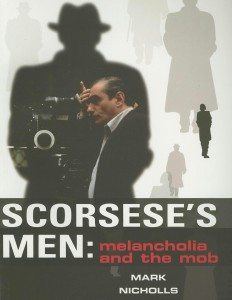Scorsese's Men
Melancholia and the Mob


Average rating: ![]()
| 0 | rating | |
| 0 | rating | |
| 0 | rating | |
| 0 | rating |
Your rating: -
Book Presentation:
"Fascinating and provocative, this book adds a completely new dimension to our understanding of the films of Martin Scorsese." —Barbara Creed, University of Melbourne
Martin Scorsese is the most influential director of his generation and, with his work regularly included among the top 20 films of all time, his place in cinema history is assured. Scorsese's films have defined the cinematic essence of each decade since the 1960s and have set the standard of New Hollywood cinema.
Mark Nicholls traces Martin Scorsese's central theme of melancholia, nostalgia, and loss through five of the director's finest films: The Age of Innocence, Raging Bull, Taxi Driver, Goodfellas, and Cape Fear. Scorsese's Men reflects on the heroes of these films and their "tribal groups": 19th-century New York Society, the Italian American Mob, and the Yuppified New South. Nicholls asserts that for all of this melancholic man's perversions, he ultimately becomes a universally adored and culturally empowered Superman of loss.
About the Author:
Mark Nicholls is Lecturer in Cinema Studies at the University of Melbourne, where he teaches the cinema of Martin Scorsese. He lives in Melbourne, Australia.
See the complete filmography of Martin Scorsese on the website: IMDB ...
> From the same author:
> On a related topic:
The Scorsese Psyche on Screen (2004)
Roots of Themes and Characters in the Films
Subject: Director > Martin Scorsese
Martin Scorsese (2025)
The Iconic Filmmaker and His Work
by Ian Nathan
Subject: Director > Martin Scorsese
Conversations on Faith (2025)
by Martin Scorsese and Antonio Spadaro
Subject: Director > Martin Scorsese
Neglected Scorsese (2025)
Overlooked Films, Television Shows, and Commercials
Dir. Phillip Sipiora and Gary D. Rhodes
Subject: Director > Martin Scorsese
Martin Scorsese's Documentary Histories (2022)
Migrations, Movies, Music
Subject: Director > Martin Scorsese